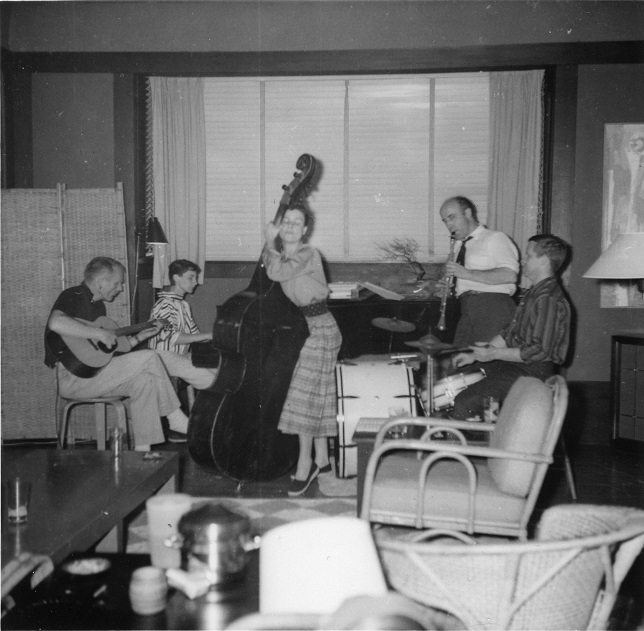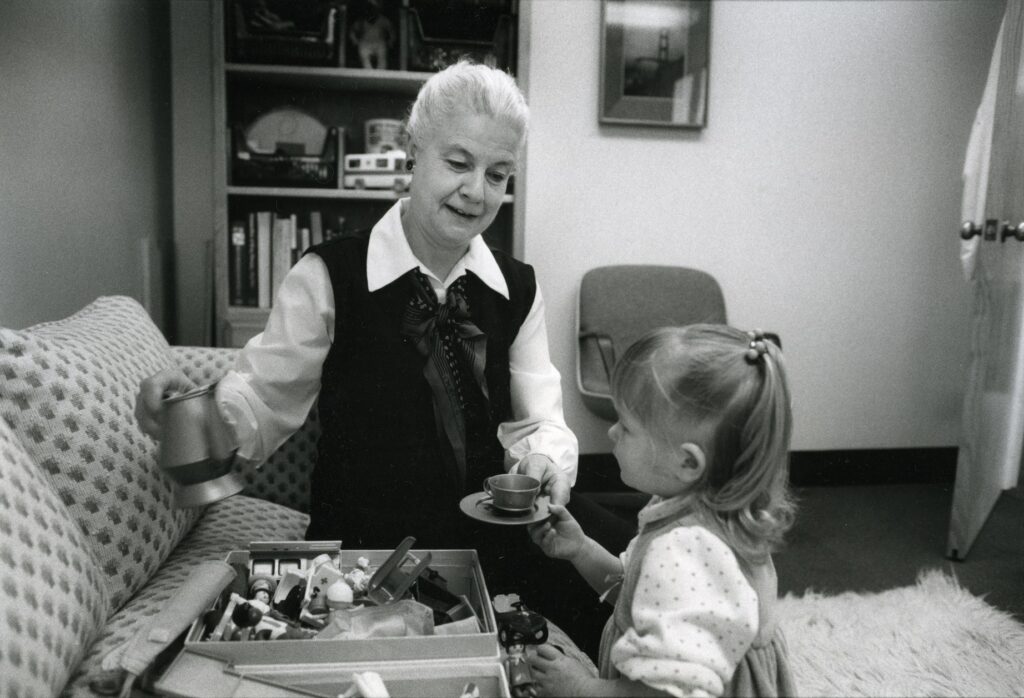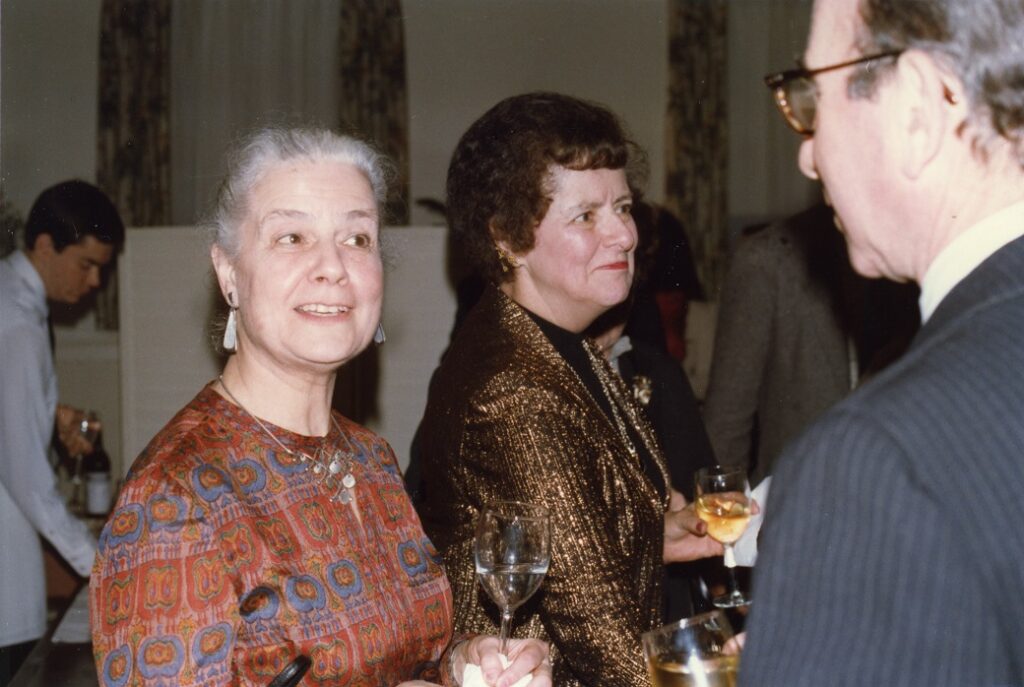This is a guest post by Kristin Daniel, UCSF Archives and Special Collections Intern.
The UCSF Archives is pleased to announce the official addition of the Helen Fahl Gofman papers. This collection, spanning several decades between the 1950s and the 1980s, details a woman who was a much loved teacher, mentor, doctor, and leader. Dr. Gofman’s affiliation with UCSF pediatrics began in 1945 when she graduated from the School of Medicine and also completed her internship and residency on campus. Gofman received faculty status in 1953 and worked in various programs until her retirement in 1983. Gofman is best remembered as a founding member, and then director, of the UCSF Child Study Unit (CSU).

Helen Gofman playing the bass, circa 1950. MSS 2014-17, Gofman papers.
Helen Gofman was, by all accounts, a passionate and cheerful woman. She was dedicated to the care of the “total patient”—not just the physical or mental condition of the child, but also how that condition impacted their social, emotional, developmental, and behavioral well-being. Considered a national leader in the field of behavioral pediatrics, Gofman was involved with UCSF’s Child Study Unit (now known as the Division of Behavioral and Developmental Pediatrics) since its inception in 1948.

Helen Gofman and child, circa 1980. Photograph collection, portraits, Gofman.
Dr. Gofman and the rest of the CSU staff of doctors, nurses, social workers, speech pathologists and special education experts sought to help children whose conditions might have otherwise been misdiagnosed or gone untreated (including cases of dyslexia or ADHD) by other healthcare professionals. The goal of the CSU was not only to help these children and their families, but also to develop a new generation of pediatric health professionals; the CSU trained clinicians to value their patients and focus on finding personalized treatments that take into account all aspects of the child’s life, not just their condition.

Helen Gofman at her retirement party, 1984. MSS 2014-17, Gofman papers.
The Helen Gofman papers (MSS 2014-17) include research subject files, restricted patient files, and personal correspondence. Also included are some of Dr. Gofman’s published works, such as The Family is the Patient: An Approach to Behavioral Pediatrics for the Clinician, which is considered a classic work in the field. Multimedia artifacts (such as lecture slides, teaching toys, and film reels) are also included. The Archives is proud to house this material and make it available to researchers.